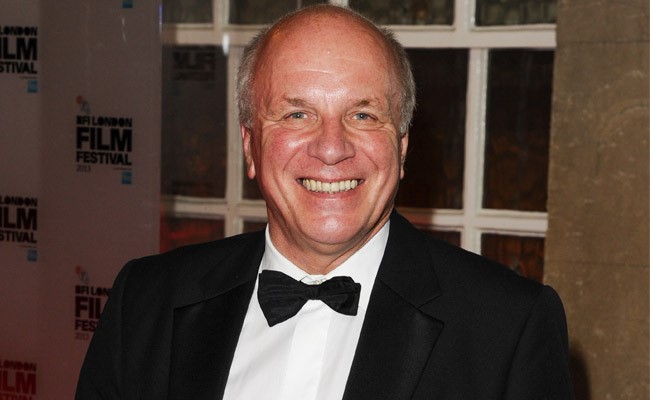When Greg Dyke met the Big Five
The formation of the Premier League was the biggest change in the structure of professional football in England in more than a century.
When media mogul Greg Dyke met the Big Five football clubs in 1991, it was the start of a new era of a super league of elite and rich clubs.
Made up of football clubs from England and Wales, the English Football League was founded in 1888, when it was known as the Football League. Over the years, the number of teams grew and the league split into four divisions in 1958.
The formation of the Premier League radically changed the financial structure of professional football. For the first time in history, the money in the new Premier League would be divided between only the clubs in that division. In the past, it had been shared between all of the clubs in the Football League, across all divisions.

Momentous meeting
Greg Dyke was the managing director of London Weekend Television in the early 1990s. At the end of the 1990/91 football season, he arranged to meet representatives of the Big Five clubs of the era to discuss the idea of a new league.
Delegates around the meeting table were the director of Liverpool FC Noel White, Arsenal’s co-owner and vice-chairman David Dein, life president of Everton FC Philip Carter, Manchester United chairman Martin Edwards and chairman of Tottenham Hotspur Irving Scholar.
Dyke believed it would be lucrative for ITV if the country’s larger clubs were featured regularly on national television. He wanted to discuss whether the clubs would be interested in a deal which would give them a larger share of the TV rights’ money.
At the time, the TV revenue had grown significantly during the late 1980s. In 1986, a two-year television deal was worth £6.3 million. By 1988, a four-year deal was worth £44 million. The money was divided among all the clubs across all four Football League divisions.
Major change
The five clubs agreed it was a good idea and decided to go ahead with forming an elite Premier League. Plans were drawn up for the new Premier League, enabling it to be launched for the 1992/93 season.
David Dein held talks with the Football Association to gain its backing. The new league meant massive amounts of money for the participating clubs. ITV offered £205 million for the television rights, but they found themselves in competition with the satellite service, Sky Television, which was said to be ailing at the time.
ITV increased its bid to £262 million but was still outbid by Sky’s Rupert Murdoch, who felt it would attract new customers. The Premier League was founded on 20th February 1992, when it was confirmed the first season would begin in August that year.
Composition
The Premier League was made up of the 19 top teams in the 1991/92 season’s First Division. It also contained the top two teams from the Second Division, plus the playoff winner.
Established in 1974, the system of promotion and relegation, involving three teams going up and three going down, continued. The Premier League had 22 teams for its first three years in existence, but it was decreased to 20 teams in 1995. This was done by promoting only two teams but relegating four at the end of the 1994/95 season.
The First Division was renamed the Football League Championship before the 2004/05 season. There was a re-branding before the 2016/17 season, when the league became known as the English Football League, headed by the EFL Championship.
Format today
There are still 20 clubs in the Premier League today. Nothing much has changed in the format – except the Big Five has become the Big Six, with the emergence of three-times champions Manchester City.
In terms of TV rights, overseas broadcasting makes up a huge portion of the market today. The value of the overseas broadcasting rights rose 35% to £4.35 billion for the period 2019 to 2022. This means 46% of the league’s broadcasting revenue comes from overseas.
Previously, every club in the Premier League received an equal share of the overseas revenue, but now, the Big Six will receive up to £80 million more than the league’s bottom sides during the three-year cycle.
Could a meeting change the face of your business or organisation? Give yourself the best start with an affordable meeting room courtesy of &Meetings. Give us a call on 0800 073 0499 to find out more about our meeting rooms for hire.
Share this post
Tags
- Career Development
- Celebrity Meetings
- Conferences
- Confidence
- Exhibitions
- Historic Meetings
- How to Interview Effectively
- Human Resources
- In The Press
- Meetings and Conferences
- Monarchy
- News
- Our Team
- Personal Development
- Personnel
- Presentation Techniques
- Teamwork
- Top Tips for Meetings
- Training & Workshops
- Video Conferences



